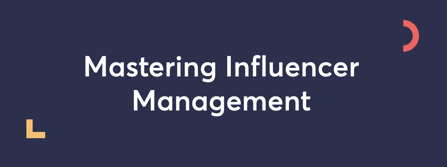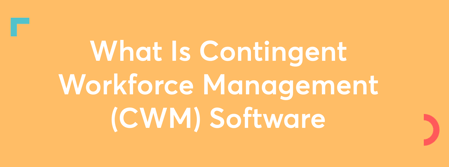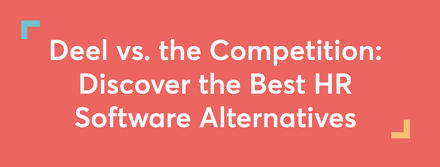- 6 Sep 2019
- 3 mins read
- Posted in
With almost 5 million self-employed people in the UK, 64% of British businesses admit to relying on freelancers1. Despite this, many companies still do not have a comprehensive strategy to manage and organise their contingent workers.
Manually managing freelancers can only get you so far — even if your team grows from 2 to 10 freelancers, you would start noticing the time and effort it takes. For instance, you’d have to:
- Arrange relevant documents, contracts and NDAs for each
- Devote time to onboarding and training them for each system you use
- Manually update their details on a spreadsheet
- Coordinate with them individually over various platforms
- Process individual payments
This is when you probably start looking for more sustainable ways of handling freelancers. You may already be familiar with Freelancer Management Systems (FMS), and how they help manage people, projects and payments. But switching to a new system can seem complex and overwhelming. You have to weigh the time, effort and cost required to set it up against the ROI it will bring you, and consider the risk of potential data loss or system incompatibility.
Let us go through each of these considerations in detail.
1) Minimal setup time with a Freelancer Management System
Switching to a new system need not always involve lengthy downtime and intense effort by your operations team. The process of setting up TalentDesk.io, for instance, is so simple, it takes less than an hour. You don’t need to have multiple IT and operations personnel devoted to it either. We assign a dedicated account manager who guides you through the entire set-up process over a screen-share call.
Now weigh this against the benefits you reap over time. An FMS like TalentDesk.io lets you filter freelancers based on their experience, skill, ratings and the amount they charge. It also lets you view the talent available on PeoplePerHour’s freelancer pool of 1.5 million. This makes it easy for your managers to choose the right person for a new project, without having to spend hours on preliminary discussions with various freelancers first.
The platform also offers a centralised view of all your projects and deadlines, making it easy for your managers to assign and coordinate tasks. Moreover, the FMS helps you automate payments by collating all approved worksheets, and generating just a single invoice for you.
Even if you work with just 10 freelancers a month, you could save up to 70% in invoice processing costs. These time and cost benefits compound over time, giving you a fantastic ROI on the hour you spend setting it up.
2) Intuitive and user-friendly
Another valid concern about embracing a new platform is the amount of time and training it will take to get your staff up to speed. Even a couple of hours spent per person adds up fast, if you have to train each new employee or freelancer who joins your team.
With an intuitive FMS like TalentDesk.io, the time you spend on training your staff is very limited. The user-friendly interface ensures that your team needs no special guidance to navigate the platform. Your dedicated account manager is always on standby, ready to walk your team through the process if needed. Onboarding new freelancers too, is a simple task — all you need to do is create a set of onboarding questions, based on your company’s requirements. The new freelancers simply fill these out, and they’re good to go.
3) Easy integration of systems
If your firm has been operating for a few years now, you may already have a few tools and systems in place — a preferred document storage platform to share information, a Project Management tool to keep track of your project data, and a database that stores all your freelancers’ details. You might think twice before switching to an FMS (no matter what the benefits), if it means having to replicate all that data you’ve accumulated through the years.
TalentDesk.io makes this transition easy for you. It supports most document storage platforms like OneDrive, Dropbox and Google Drive, so your team doesn’t have to completely change the way they work. While our platform has inbuilt Project Management capabilities, if you already use a tool that has a lot of data on it, we can help you integrate that too. Your finance department can also be added to the system, so they receive the comprehensive invoice directly. This effectively helps you bring all systems and capabilities in one place, and lets your team function with minimum disruption.
4) Security & Data Compliance
No company today can afford to slip up on security and data compliance. As per GDPR guidelines, a strict protocol needs to be followed while collecting and storing personal data pertaining to the individuals you work with. This data needs to be securely stored, and regulations need to be put in place to ensure it cannot be misused. In preparation for IR35, you also need to have contracts and documentation that clearly define the status of your contingent workers and the nature of work they do.
With an FMS, you can rest assured on the compliance front. Every detail about your freelancers, including their personal data, sensitive payment information and all the contracts and NDAs they have signed, are stored securely, in one location. No unauthorised person or entity has access to this information — the only people who will be able to view this, are the managers in your organisation whom you personally add to the platform. Every invoice raised leaves behind a clear audit trail, reducing the risk of security breaches.
Adopting a brand new system is never an easy decision. But when you opt for an agile platform that almost functions like a plug-and-play solution, the process becomes way more simple, straightforward and hassle-free than you initially thought it would be.

Richa Dayal
Speak to us to find out how we can help you pay your contractors more efficiently
Related articles
What is a Vendor Management System (VMS)? A Complete Guide
What is a Vendor Management System (VMS)? A Complete Guide
Discover what a Vendor Management System (VMS) is and why it’s essential for managing your workforce. Streamline vendor management with ease.
Best Contractor Management Software for 2025
Best Contractor Management Software for 2025
Discover the best contractor management software to streamline workflows, ensure compliance, and simplify payments. Manage global contractors with ease.

Mastering Influencer Management: Strategies for Effective Collaboration
Our guide to influencer management, exploring strategies, tools, and tips to create successful influencer relationships and enhance your marketing impact.

10 Reasons Why You Don’t Need a Contractor Management System
Discover 10 hilarious reasons why you absolutely don’t need a contractor management system - because who needs efficiency, happy freelancers, or sleep?

2024 Engineering Recap
See how we enhanced features and added automation in 2024 to improve TalentDesk user experience. Here's a full recap and a look ahead to 2025.

What Is Contingent Workforce Management Software?
Discover how contingent workforce management software enhances cost savings & access to talent. Learn about essential tools, compliance & best practices.

Deel vs. the Competition: Discover the Best HR Software Alternatives
Discover the best Deel alternatives for global HR management. Compare features, pricing, and reviews to find the best solution for your global workforce.
The Ultimate Guide to External Game Development
The Ultimate Guide to External Video Game Development
Explore our ultimate guide on external game development, covering crucial strategies, tools, and tips to manage freelance developers efficiently.
How to Manage Subject Matter Experts
How to Manage Subject Matter Experts
Unlock the full potential of your projects with our expert guide on managing Subject Matter Experts. Learn strategies for effective collaboration.

What is a 1099 employee?
This is a complete guide on 1099 employees. Learn how to classify your workers, improve finances, boost employee morale, and enhance your reputation.
